History
YMCA was established in 1844 in London, by George Williams and his colleagues, as a viable answer to the needs of young people confronted with the new social-economic situation of the 19th century.
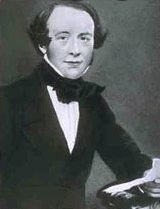
Arriving in the Czech land
YMCA also found her way to Czech land. When the first Austro-Hungarian YMCA was founded in 1873 in Vienna, a number of Czechs, students and apprentices were involved in its activities, as well as representing it at the international forum. YMCA came to Bohemia directly only 13 years later, when the first Prague group was formed. In 1884, after the Berlin conference, G. Williams and Ch. Fermaud visited Prague. They contacted A. W. Clark, an American pastor and pioneer of the Free Reformed who had worked among the young men in Prague for several years. At first, their idea was miscommunicated and misunderstood, but only a year later, in 1855, the first constitutional documents were drafted. There were a number of difficulties, due to the distrustful attitude of the police, as they didn’t like the exclusive religious nature of the association. After returning two initial constitutional documents, the club was officially established in 1886. While the first YMCA in Czech had just been founded, other YMCA centers have been in action for over 40 years.
First World War and post-war development
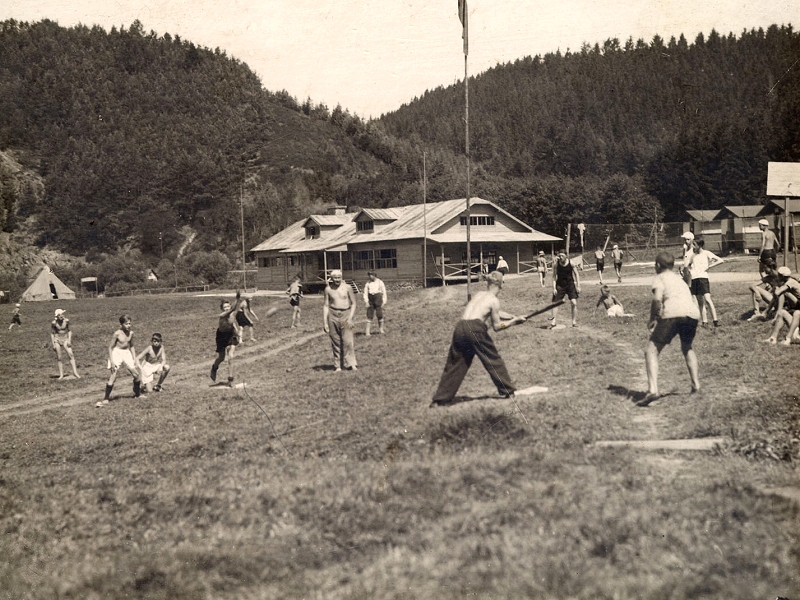 The events of war almost completely paralyzed all activity and deprived many people of courage and desire for further work. However, many associations in other countries saw the war as a stimulus for new and more intense activity: a number of secretaries went to the front and worked among soldiers. It was due to this, that many Czech and Slovak soldiers first came face to face with the YMCA’s work and activities.
The events of war almost completely paralyzed all activity and deprived many people of courage and desire for further work. However, many associations in other countries saw the war as a stimulus for new and more intense activity: a number of secretaries went to the front and worked among soldiers. It was due to this, that many Czech and Slovak soldiers first came face to face with the YMCA’s work and activities.
With the end of World War I. and the establishment of Czechoslovakia, the third development stage of Czech YMCA comes to being. After the war, YMCA gains a new form, a military form. With the return of Czech legionnaires, a number of YMCA workers came to Czechoslovakia. They started to build homes for war retirees and offered special care.
During the World War I., YMCA began working in military units and in prison camps. Thus, the secretaries came to meet the legionnaires in Russia. The legionnaires most appreciated the fact that YMCA allowed them to connect with their homes. After all, they were traitors and by 1918 it was not at all certain that they would be able to return to their families and homeland. After the founding of the Republic of Czechoslovakia, the Legionnaires, called upon their right given by the provisional Paris Government, and demanded that YMCA workers (called uncles by the Russian legionnaires) go with them and continue their work under the military in the Republic. The workers built so-called YMCA military homes. Each home had its own library and reading room, where it was possible to borrow books, read newspapers and magazines, not only the national newspapers, but also English, German, French and Russian. Social games (chess, checkers…) were played here. Each home had its own writing room – anyone who came, was given free paper or a card to write back home. Hot cocoa was served as a part of the abstaining YMCA’s program. Lectures were held, teaching of foreign languages took place. Cinematographic performances were a novelty. However, it was the sports program that enjoyed the greatest popularity. Each home built its own playground. The YMCA introduced a number of previously unknown ball games - volleyball, playgrambol and other. On September 26, 1919, an agreement on mutual cooperation was signed between YMCA and the Ministry of National Defence. At that time, there were twelve YMCA homes in the Cs Republic. By July of 1920, 70 army centers and 70 affiliates had been built. The military work of YMCA ended in another three years, when its work was taken over by the education corps of the Ministry of National Defence.
Already in 1920, President Masaryk asked the Geneva headquarters to support YMCA's work in the new Czechoslovakia. Due to this, dozens of secretaries came from the US and Canada, worked hard, and the YMCA started to grow. YMCA’s work was governed by a strong central committee, with a number of well-known people, including E. Rádl, F. Drtina, V. Havel and others. Thus, unlike in the previous two stages, the initiative to work comes from above, from the YMCA’s headquarters.
The YMCA’s academic wing was involved in working with students, high school and university students. This wing had the guidance of many excellent Christian thinkers and theologians of the time. The Academic YMCA influenced and shaped many public personalities, as well as the political and ecclesiastical life.
Double ban activity
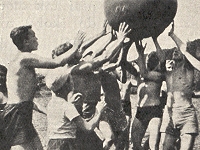 In between wars, at its highest point, YMCA had about 20,000 members and was a pioneer of many new things, such as youth work, sports (YMCA introduced us to volleyball and basketball), camping (YMCA’s camps were exemplary), and in the field of developing the young Czechoslovak democracy. However, the promising and great development of YMCA was again crippled by war. During the war, many YMCA workers were actively involved in the resistance, and a few paid by their lives, including three secretaries: Jaroslav Šimsa, Jaroslav Valenta and Rudolf Mareš.
In between wars, at its highest point, YMCA had about 20,000 members and was a pioneer of many new things, such as youth work, sports (YMCA introduced us to volleyball and basketball), camping (YMCA’s camps were exemplary), and in the field of developing the young Czechoslovak democracy. However, the promising and great development of YMCA was again crippled by war. During the war, many YMCA workers were actively involved in the resistance, and a few paid by their lives, including three secretaries: Jaroslav Šimsa, Jaroslav Valenta and Rudolf Mareš.
After several years of forced interruption during the war, YMCA started to continue its efforts, from 1945 until 1951, when it was again banned and robbed of property.
However, a number of traditions and activities continued in the same place, where YMCA came from and where it had its background; on the grounds of the Evangelical Church. Working with the Bible, meeting young people, joint trips and camps, working brigades, all remained as its legacy. YMCA itself however left the scene for a long time.
YMCA resumes activity
Despite its efforts, YMCA was not allowed to resume its activities in 1968 during the Prague Spring, although many other organizations were allowed. Therefore, a new chapter, the fifth already, after the war and post-war period, began in 1989.
During autumn of 1989, a group of about 15 previous workers gathered, and began to work on the YMCA’s reconstruction. Very soon, they were joined by others, not only previous workers, but many newcomers, who were inspired by YMCA’s mission. The group’s central figure was Dr. Lubor Drápal, the last post-war secretary of the Academic YMCA. Contact between World Alliance YMCA and the European Alliance YMCA was established soon after, and an external meeting of the European Alliance Committee of YMCA was held on the 1st and 2nd of February 1990. This meeting was held in Prague and was also attended by the Secretary General of the World Alliance and representatives of the YMCA from the USA. The meeting’s purpose was mainly establishing the YMCA’s role in the newly “liberated countries of Central and Eastern Europe”.
To support the newly starting YMCA’s centers, the European Alliance created so-called Field Groups, which were given the task to coordinate the help given to new YMCA’s centers in different countries. Group No. 3, which worked in the late Czechoslovakia, had workers from Norway, Denmark, Switzerland, Germany, Austria, and some contribution was also made by England, Canada (Toronto) and the USA. This assistance of the Czech YMCA’s development was really great, not only in the financial assistance but also in the passing down of YMCA’s know-how, especially in acquiring, motivating, training and educating people who had just began their work in YMCA.
On the 28th of February, the Ministry of Interior approved the submitted constitutional documents of YMCA in Czechoslovakia and on March 2nd, this decision was finalized and obtained legal power. The first establishing meeting took place in the conference hall of the Prague hotel Budovatel (today it’s hotel President) on the 23rd March and was attended by more than a hundred members and supporters of the YMCA. Following Prague, YMCA’s centers were soon established in Hradec Králové, Liberec, Brno and other Czech cities. In 1992 at the General Assembly of the YMCA in Seoul, the Czechoslovakia YMCA was again accepted as a member of the World YMCA Alliance. This was preceded by the acceptance as a full member of the European YMCA in May of the same year at the General Assembly of the European YMCA in the Netherlands.
However, 1992 was also a year of one painful breakup. YMCA was working as a Czechoslovak association, but as the expected break-up of Czechoslovakia was approaching, the Czechoslovakia YMCA was also divided.
On November 7th in 1992, the constituent Congress of the Czech YMCA met in YMCA’s building Na Poříčí, and with that meeting another chapter of our veterinary history has begun.
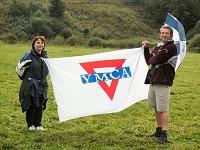
YMCA has been around for over 175 years. A little less in the Czech Republic, but it’s already started the second century of its existence. A long and glorious tradition is a great and beautiful thing, something we can be inspired by and learn from. However, it has to remain a movement for our time. Movement of servitude and one, that carries the gospel. Without this ongoing movement spirit, the famous tradition is useless.
During the decades of its existence, YMCA has experienced moments of calm and agitation, working in many different areas, using various forms and ways of working. The forms and ways of work are changing, the people who carry and create YMCA are also changing. Only the task remains the same: To spread the kingdom of God. YMCA wants to be a place where people can get to know the gospel, where they can learn how to live by the gospel in their everyday lives. A place where they can know Jesus Christ. He wants to bring the light of hope and life to the world.
Therefore, as a biblical motto, the Czech YMCA has chosen a biblical verse from the Gospel of John (8,20): "He who follows me will not walk in the darkness but will have the light of life." YMCA wants to show the testimony about this light, through the work it’s doing.
Do you know...?
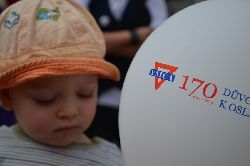
YMCA was founded in London in 1844?
© YMCA v ČR | Czech version

